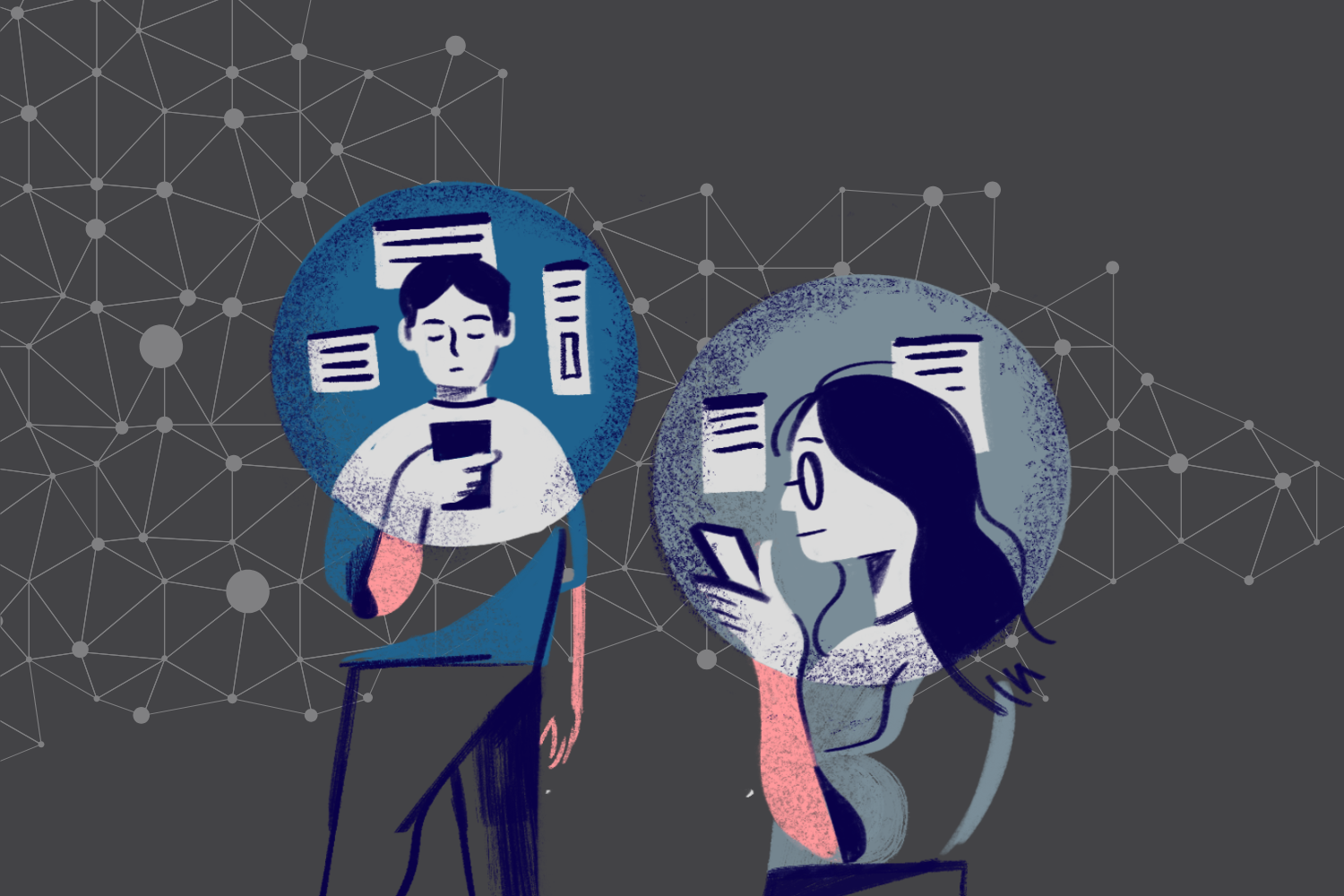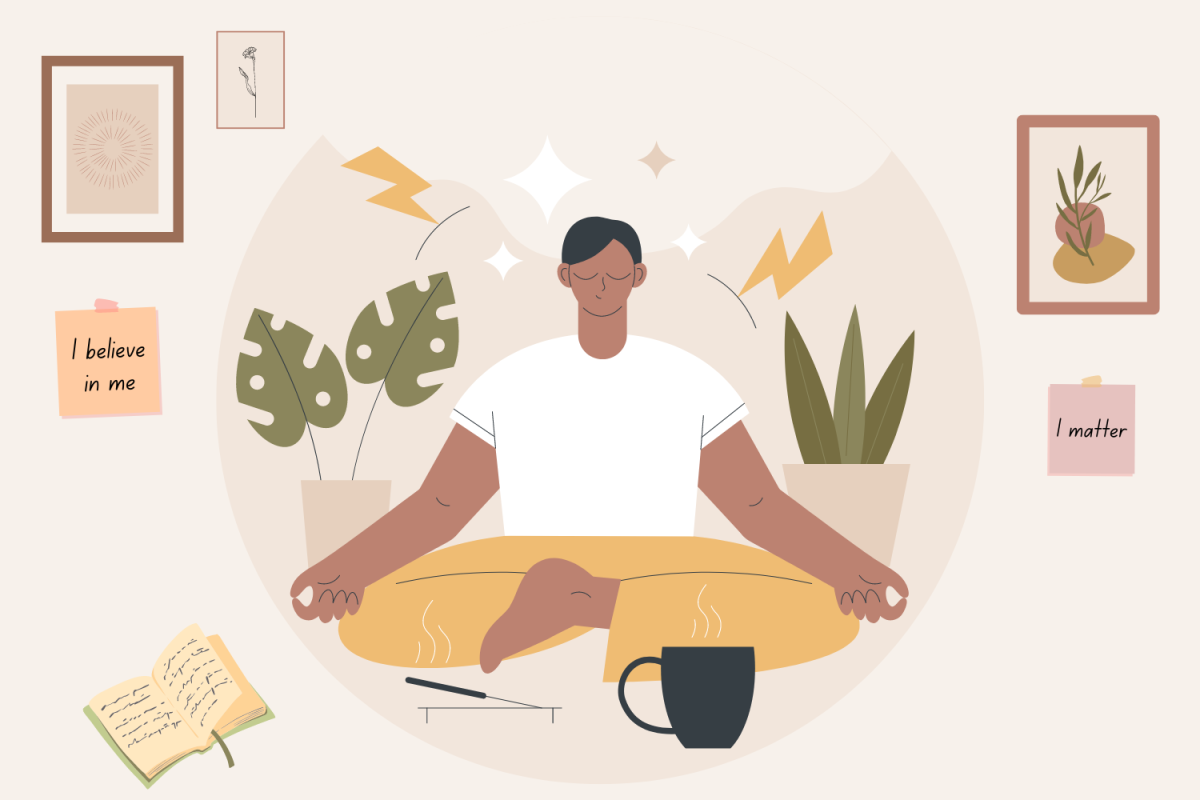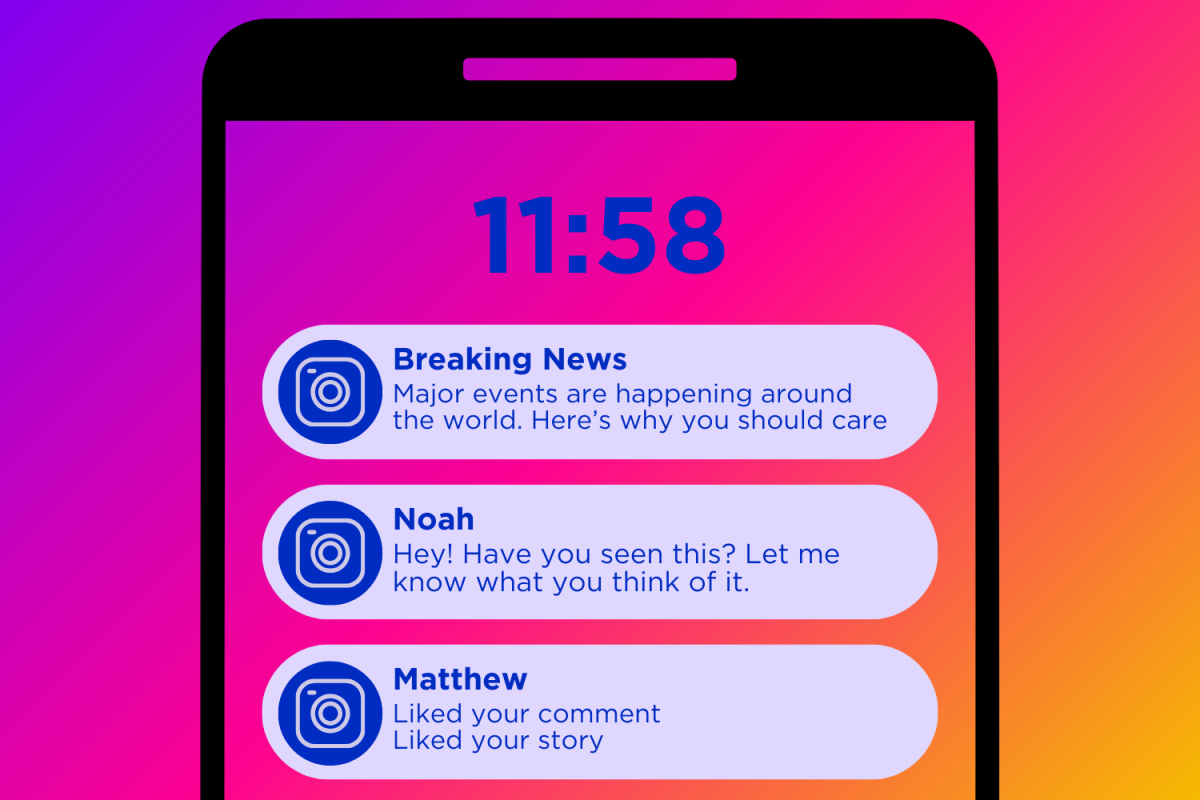It’s no secret that social media can be a toxic place, especially for teenagers. I’ve had social media platforms like Instagram since I was a pre-teen, and going through adolescence with apps that constantly reminded me of societal beauty standards, what everyone else was doing and seemingly perfect lives wasn’t always easy. Entering my college years meant an entirely new experience interacting with social media. From the day I received my Vanderbilt acceptance letter, I was obsessively looking through Instagram, following people with “Vanderbilt ‘28” in their bio and sending DMs to potential roommates.
While I do appreciate that Vanderbilt allows you to choose your own roommates, the process is a perfect example of how our identity as young people is intertwined with our social media accounts. When picking who we want to live with at college, we are analyzing people based on the pictures they’ve deemed Instagram-worthy and asking ourselves questions such as “What do they look like? How many friends do they have? How many places have they traveled?”
This experience only became more extreme once I arrived on campus. Although there have been some difficulties adjusting to my new life at Vanderbilt, I’ve had an amazing first couple of months. I’ve already made some incredible friends, enjoyed exploring Nashville and loved my day-to-day life on campus. Frankly, I couldn’t be happier with how things have been going for me. Yet, social media has still caused me to compare my experience to others. When scrolling through social media, I’ve found myself feeling like I haven’t made as many friends as other people or don’t do enough exciting things on the weekend. Beyond our campus, seeing social media posts from friends at other universities has caused me to compare my college experience to theirs as well. Getting stuck in this comparison mindset has been extremely frustrating, especially when I am actually really happy at Vanderbilt.
Pointing out the harm that social media can cause to young people and its tendency to cause comparison is far from revolutionary. Countless studies point to the harmful effects of social media, and one article from The Atlantic sums up the problem with social media well: “Social media — particularly Instagram…puts the size of their friend group on public display, and subjects their physical appearance to the hard metrics of likes and comment counts…” This message certainly rings true for college students, where social media can make us compare our college life, friend group and appearance to other people at our school or even at different schools.
Henry Shear, a staff writer at The Hustler, explored the many concerns of social media in an article over the summer. He points out the fact that social media is not real, even if it may seem to be. Additionally, he notes that “society is stuck in a vicious cycle of emotional immaturity driven by carefully curated fantasies, where people only share what they want others to see.” The sad truth pointed out here is that social media causes us to compare our very real experiences to a fake snapshot of someone else’s life. Social media can totally warp your perspective on how your college experience is going and what it should be like. Ultimately, we cannot let a caricature of reality impact us in real ways. If social media is changing the way we view our own life and happiness for the worse, it’s simply not worth it. So, what can we do?
Well, the most obvious answer is to entirely remove social media from your life or limit your use. I know—this venture might seem impossible. Social media can feel so integral to our social lives and there can certainly be a lot of benefits from being on the platforms, but, at the very least, limiting your usage can make a huge difference and prevent doom-scrolling or spiraling into comparison. App time limits can also be a helpful tool, but if you’re like me, you usually just ignore these. One strategy that has worked for me is not having social media apps such as Instagram and TikTok on my phone but still allowing myself to check them periodically on my computer. Using this tactic has allowed me to avoid missing out on what my friends from back home are up to or my favorite influencer’s posts, while also keeping me from using the platforms too much or mindlessly scrolling just because they are always in my back pocket.
Similarly, unfollowing accounts that you notice are negatively impacting you can make a big difference. We may not want to admit it, but I think that most of us have at least one account we follow that frequently sends us into comparison, jealousy or frustration. It may seem dramatic to unfollow someone, but I’ve done it before and it really helped me.
Ultimately, the most important way that we can counter the comparison, jealousy and sadness that can be triggered by social media is to focus on gratitude, realize what is actually important and prioritize what leads to true satisfaction. The truth is, a “perfect” life on social media does not equal a perfect life. Maybe the person with the “perfect” life on social media is actually really happy — but they might not be. Ask yourself this question: Could someone tell what the best and worst moments of your life are by looking at your Instagram? Probably not — social media is a carefully crafted snapshot of our lives and doesn’t reflect reality. At the end of the day, there is so much more to life than what can be represented online.
An article from The Huffington Post explores the way social media has caused our society to over-value superficial things, saying,“[i]f people are feeling depressed by lifestyles and materialistic items they view on social media, then there is something fundamentally wrong with our understanding of what is important…You can continually envy the lifestyles of others, as there will always be someone who has more than you…So next time you are lurking on some glamorous account on social media, stop and think, is this reality? But more importantly, is this important?” Realizing that social media can often trick us into over-valuing things that aren’t ultimately fulfilling is an important step in improving our mindset.
In our day-to-day lives at Vanderbilt, we should seek ways to prioritize gratitude and realize what is actually fulfilling to us. One example of how to practice this mindfulness is to take advantage of all the opportunities at Vanderbilt to explore our interests and meet like-minded people. As a first-year student myself, I’ve found joining clubs and building relationships with people in those clubs to be extremely fulfilling. This experience also highlights how lucky we are to be at a university filled with other like-minded, passionate people.
Though it may sound cliche, reminding yourself of what you are grateful for can make a huge difference in your mindset. I’m an avid journaler, and every night I try to write down at least one thing that I’m grateful for or one thing that made me happy that day. Even on bad days, I’m always able to think of something, which is an active reminder of the good things I have in my life instead of just focusing on what I don’t have as compared to others. A couple of my friends at Vanderbilt even started a gratitude jar where they write down one thing every day they are grateful for. These crafts can be super fun to look back on in the future and remind you of all the wonderful things in your life that you maybe wouldn’t remember otherwise.
Overall, when going through your daily life, pay attention to the activities and people bringing you the most fulfillment, and lean into that. You’ll probably find that the best relationships and experiences are the ones that draw you in so completely that you don’t even think about checking social media.
Social media causes us to focus on the superficial aspects of life that don’t bring true satisfaction. On top of that, the things we see on social media aren’t real life. Comparison is a never-ending game that distracts us from what’s really important and the things that we have to be grateful for. I encourage you to be aware of how social media is impacting your perspective on life and to know that it is possible to create a healthier relationship with those platforms. Remember this: A great college experience doesn’t come from having the best pictures on Instagram but from the genuine relationships and meaningful experiences we have that can’t be represented in a slideshow of photos.











Lilia gonzalez • Nov 9, 2024 at 7:42 am CST
Beautifully explained and written.
Being mindful of what we see and analyzing
It’s veracity.
Being present for life as it’s happening and grateful.
I enjoyed this article very much.